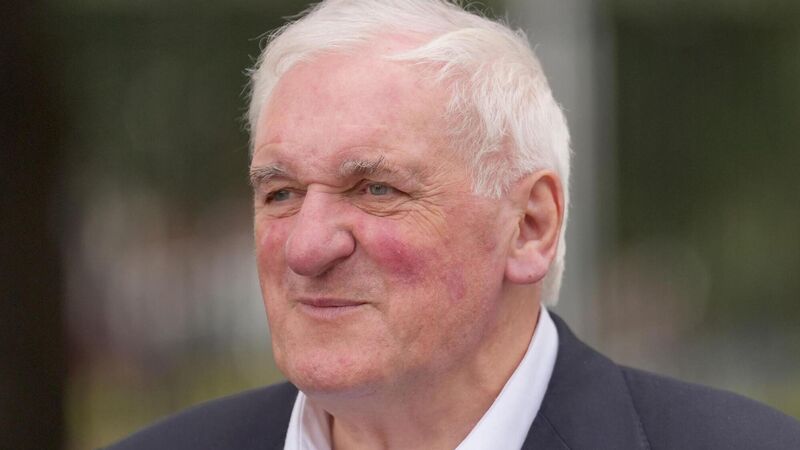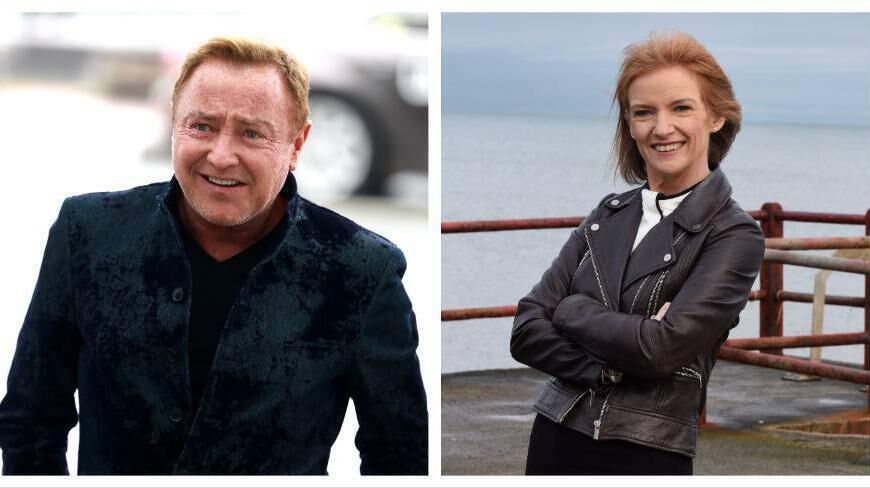Terry Prone: Bertie Ahern’s past political bombs come back to blow up in his face

Former taoiseach Bertie Ahern announced last week that it would not have been possible to secure a nomination to run for the presidency. Picture: Brian Lawless/ PA
Getting out of the way of an oncoming bus is always wise. But this is the first time that so many people have done so in relation to the presidential election.
No previous election has seen a weekend like we’ve just experienced, with little paragraphs everywhere announcing the abandonment of campaigns.
That’s the sad part: the smallness of the paragraphs. Once you’re gone, you’re gone, and not worth kicking any more.
Or, to mix a metaphor, the electoral double-decker doesn’t get a chance to roll over you, which is a whole lot better than going the full distance, spending a quarter of a million you could otherwise devote to making your retirement a bit more luxurious, and being publicly tortured over your every past mistake.
On the other hand, several of the prospective candidates who abandoned their nascent campaigns this weekend may feel that while the bus didn’t actually roll over them, it did give them a good sideswipe.

Bertie Ahern, for example, has reasons to lick his wounds. You remember the Shakespearean line in Hamlet about being hoisted with his own petard?
It’s often assumed that the petard was some kind of spear on which to “hoist” a human, but in fact, the petard was a bomb, and the reference is to blowing yourself up by accident.
Which is more or less what happened to Bertie.
The rationale for his rejection, and the manner in which it was executed, are resonant of his own past modus operandi, leaving him huffing impotently about the process engaged by current leader Micheál Martin.
This message is the latest contribution from the former taoiseach to the revision of public opinion about him, an endeavour to which he devotes unstinting energy.
In the middle is this sentence: “In ’92 one of my political colleagues said, ‘you need to know where the taoiseach lives’, because he knew and others knew I was staying in the office over St Luke’s.”
No, don’t skip over that one as obscure or irrelevant. It isn’t.
It won’t make any sense to the vast majority of readers, but it is signally (if unintentionally) important to our understanding of Bertie Ahern.
The “colleague” of whom he speaks is the late Albert Reynolds, and the first time I heard Bertie talk about this was in the Shelbourne Hotel over breakfast about six months after it happened.
He indicated to me that he forgave my late husband, Tom Savage, then an adviser to former taoiseach Albert Reynolds, for putting that crack in Albert’s mouth during the leadership election, several months earlier.
Tom hadn’t done this, and so, when I told him about it, he was baffled by the accusation and amused by being forgiven for something he hadn’t done. As was I.
Most people never registered it at all. But it rankled with Bertie.
God, it rankled with Bertie, back then.
The fascinating and infinitely melancholic thing is the degree to which it still rankles with Bertie.
Thirty three years after a long-dead Fianna Fáil leader made a crack about where Bertie was living, Bertie has brought it right back up, reminding his faithful (the only ones, other than hacks, who will listen to his 35-minute message) of something that made little sense at the time and even less sense now.
His accusation that Albert — who he doesn’t name — knew that Bertie was living over his Drumcondra office, called St Luke’s, requires a lot of work on the part of the listener to establish what was shaming about that residency.
It was common knowledge that Bertie and his wife Miriam had parted. If he subsequently moved into the second floor of St Luke’s, so what?
He’s now maintaining that Albert knew he was living in St Luke’s but posed this “political challenge” to him by saying the voters liked to know where their political leaders lived.
The best guess is that Albert was implying that Bertie was less stable in some way than was the happily married Albert. Not much more than a sneer.
Its current significance lives in the bitterness attached to it in Bertie’s memory. A man who nudged a divided nation to get over its past can’t get over his own past.
Three decades after a throwaway remark was uttered, it still has the capacity to infuriate him.
Three decades later, he can’t leave it out of a message designed to justify him to his supporters, even though he doesn’t say anything in his audio message that explains the original crack or delineates why he perceives it to have been so offensive/untrue/damaging.

Meanwhile, Michael Flatley gracefully abandoned any presidential plans he had and went off to look after his own health. While playing his flute.
Joanna Donnelly ended what may have been the shortest presidential campaign ever, following a TV interview that might serve as a useful object lesson for TV/radio presenters interviewing candidates coming up to polling day.
The lesson being that you don’t have to interrupt and do “but surely” argumentation in order to get at the truth.
In this instance, Kieran Cuddihy’s interview had hardly any interruptions. Instead, he gave the candidate courteous, silent attention, which was much more effective.
By the end of the interview, the candidate was done.
When a blizzard of forwarded links to an interview blows into your phone, it’s because viewers need company to get over what they’ve just watched.
Which brings us to a leap in logic already apparent in the campaign. The leap in logic first of all takes the form of extrapolating from the past: “I’ve done a lot of media in the past, so I’ll be grand.”

That’s the rock many of the contenders will perish on, starting with Conor McGregor.
Now, McGregor’s grasp of the political realities is so sketchy that he doesn’t seem to have put together an actual strategy to become a contender.
As puzzling as Bertie’s obsession with a sneer made more than 30 years ago is what we’ll laughingly call McGregor’s management of his candidacy.
It could be that McGregor believes he can parlay failure to get onto the ballot into something of an outraged international claim to exclusion because of what he stands for. His values, like. (No laughter down the back.)
But they’re still coming.
Kieran McCarthy, an Independent member of Cork City Council, told at the weekend that he’s off today to seek the nominations of four local authorities. Despite Fine Gael telling its local authority members not to encourage randomers.
All this is democracy in action. You have to remind yourself of that. Otherwise, you might see it as playing chicken with a double-decker.






